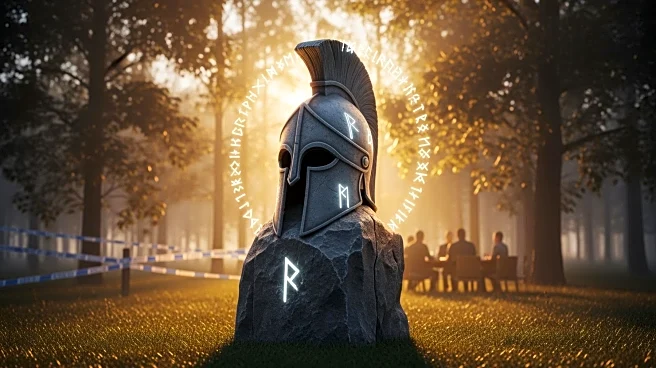What is the story about?
What's Happening?
Belarus has released 52 prisoners, including an EU employee, after an appeal from President Trump. This development comes as the United States and Belarus explore a potential rapprochement, which has been met with skepticism by several European leaders. President Trump had previously urged Belarusian President Alexander Lukashenko, who is closely allied with Russian President Vladimir Putin, to release these detainees, whom Trump described as 'hostages.' Belarus, which shares borders with three NATO countries and Ukraine, allowed Russian forces to use its territory during the 2022 invasion of Ukraine, although the Belarusian army did not directly participate in the conflict.
Why It's Important?
The release of prisoners and the easing of sanctions by the US could signal a shift in Belarus's international relations, potentially reducing its isolation from Western countries. This move might also influence Belarus's geopolitical stance, especially in relation to Russia and NATO. The decision could impact regional security dynamics, given Belarus's strategic location and its previous role in the Ukraine conflict. European leaders remain cautious, as any change in Belarus's alignment could affect the balance of power in Eastern Europe.
What's Next?
The easing of sanctions and the release of prisoners may lead to further diplomatic engagements between the US and Belarus. However, the response from European nations and NATO will be crucial in determining the future of Belarus's international relations. Continued monitoring of Belarus's actions and its relationship with Russia will be necessary to assess the long-term implications of this development.
Beyond the Headlines
This event raises questions about the ethical considerations of negotiating with regimes accused of human rights violations. The potential normalization of relations with Belarus could set a precedent for how Western countries engage with authoritarian governments. Additionally, the impact on Belarus's domestic policies and its citizens' rights remains uncertain.
















